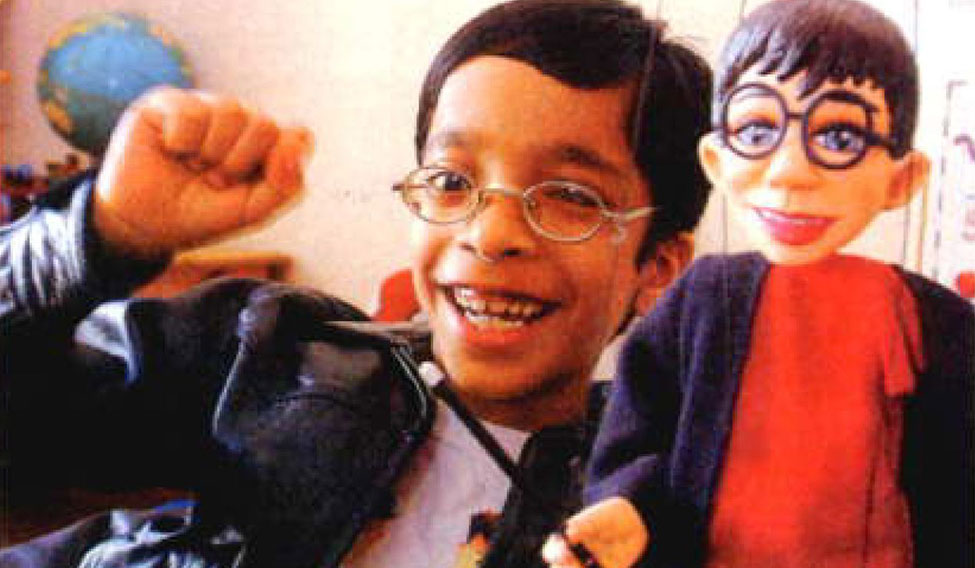July 16, 2005 is slated to be more important than the mother of all Quidditch matches. Unless you are capable of apparition (provided you have the licence from the department of magical transportation) or you are a registered animagus thereby possessing a remote possibility of an unobserved entry into Bloomsbury's well-secured warehouse, you have to, like the rest of us Muggles, stand at midnight outside the bookstore where you have registered in advance and wait in line for the promised Holy Grail of modern times: Harry Potter and the Half-Blood Prince.
Much newsprint and internet space have been spent on J.K. Rowling's extraordinary creations. The world is sharply divided into two camps: those who rave about Harry Potter and those who rant. It's hard to be indifferent about Harry and his magical world He is seen either as the greatest hero of modern rimes or as Antichrist. No ficiional character in contemporary times has captured the imagination of Indian children (and adults) as much as Harry has. and this has often resulted in people askinig me—whether with fascination or with concern—why this is so?
Is the reaction of Indian children a bit over the top? Is this another example of aping the 'decadent' west? Why can't children read Enid Blyton's clean hooks where boys are little gentlemen, girls are little ladies (unless you're George of the Famous Five) and Mallory Towers is where the action is? Does all the violence and sorcery put ideas into children's minds? While I do understand the concern that many parents experience, the way I see it, there's absolutely no cause for panic. It is but natural that Indian children respond in the manner chat they do to Harry Porter. For centu-ries we have had a rich storytelling tradition on which generations of children have grown up, learnt about the world and imbibed basic human values. And, all our stories have been fantastic ones in which magical creations have used their powers wisely: in which foxes and monkeys think, talk and communicate fundamental values of life; and in which humans fly to faraway places. Whether in the Panchatantra or in our great epics—the Ramayana and the Mahabharota-fantasy has been employed as a powerful technique.
J.K. Rowling has used precisely this technique to develop on the 'good over evil' theme. For, even though one is dealing with witchcraft and wizards, you still have the good witches and wizards triumphing over the evil forces of Lord Volde-sorry. The One Who Must Not Be Named.
Rowling has actually gone one step further. She has created a magical new world replete with a whole new vocabulary and detailed practices that one required for survival in her world. In doing so, she has recognised the need for children and young adults to have their own space which keeps grown-ups out. This is part of the natural process of metamorphosis from childhood to adulthood. You will recall that young children use slang and secret codes that exclude adults. In Harry's world, they have a creator in Rowling who has gone into extraordinary detail about the different things that witches and wizards can do, like legilimency (who among us has not fantasised about reading other people's minds). However, she has ensured that there are adequate controls and boundaries (like some powers that require permission from the ministry of magic). So, even in an alternate society, there are control mechanisms and children need and respond well to limits being defined for them.
The other thing is Harry himself. He is an orphan whose existence in the Muggle world is full of strife (Dickens's children were not much different, were they?), who has suffered the trauma of loss of parents, who is an imperfect person who has to grow into wizardry (remember he still needs the Hogwarts School, like all kids need school). In other words, children can identify with his almost nerdy kind of appearance. He is, for all practical purposes, a regular kid who, after entering the world of magic, becomes a hero. Who doesn't want to be a hero? In fact, Harry is easier to relate to as a hero than cyborgs and androids, that no ordinary person can aspire to be.
As for kids emulating Harry, maybe some of them may get carried away and attempt to fly a broomstick. But what the hell. I remember a childhood friend who wore a cape and jumped off the roof hanging on to an umbrella in the mistaken impression he was Batman (fortunately he did this from 3 single-storeyed building)! The occasional misfortune may happen, but this is hardly a reason to repudiate the phenomenon knows as Harry Potter. May his tribe increase' And my 16-year-old niece thinks so too!
The writer is a Chennai-based psychotherapist, relationships consultant and author of two books.







